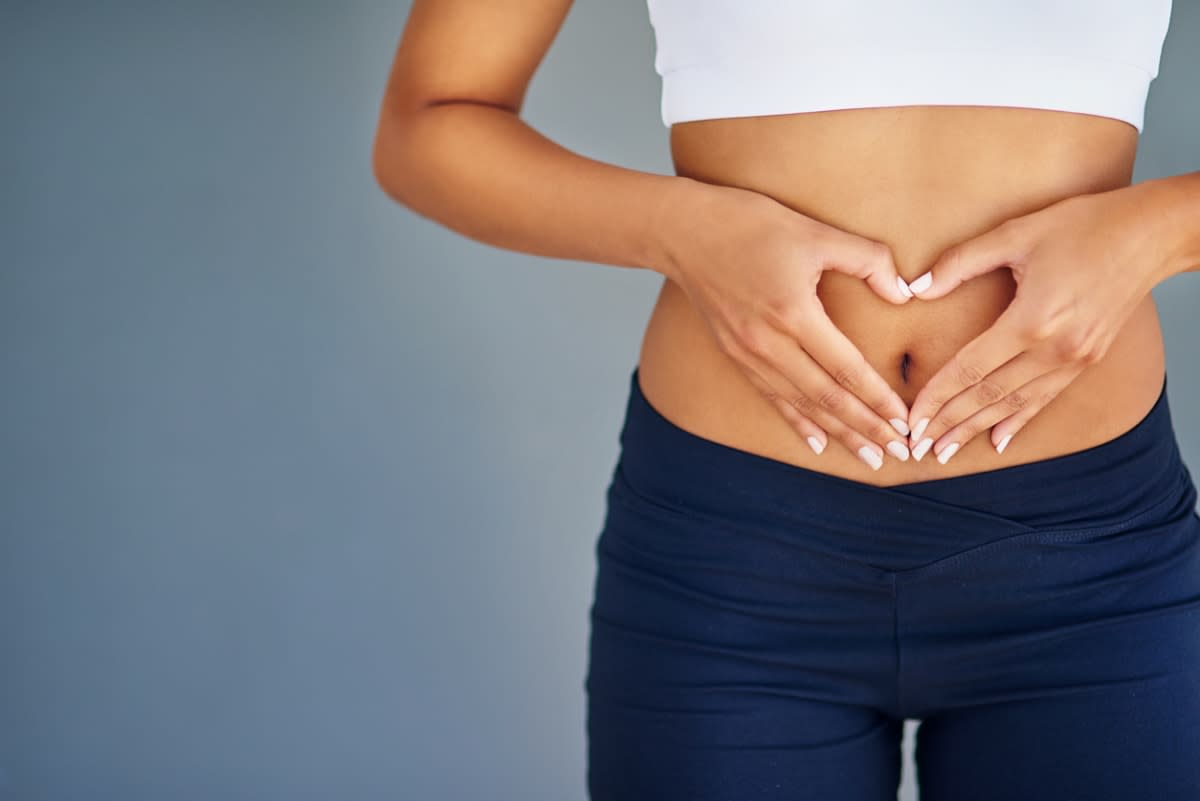This Is the #1 Best Prebiotic Food for Gut Health, According to GI Docs

Well, this seems easy enough.
It’s no secret that what you eat affects your gut health. Specifically, it impacts the bacterial balance in your gut microbiome.
“Imagine your gut microbiome as a rainforest,” says Dr. Amy Myers, MD, medical and functional medicine physician. “In a rainforest, many types of plants live together in a symbiotic ecosystem. However, if the balance gets disrupted, the good or beneficial plants begin to die and the bad ones start to take over. This also happens in your gut.”
If you’re eating a diet high in refined carbohydrates, sugar and alcohol, then you will feed the harmful bacteria and yeast (candida), letting them overgrow out of control and this is called dysbiosis.
Over time, having this dysbiosis in your gut microbiome will eventually lead to a leaky gut, which happens when the tight injunctions in your gut begin to tear apart, Dr. Myers adds. If your gut is leaky, food particles, toxins and infections can get through your intestinal lining and into your bloodstream where your immune system detects them as foreign invaders and goes on high alert, attacking them and creating inflammation.
Eventually, your immune system becomes overstressed and starts firing less accurately. An overactive immune system leads to autoimmunity and other health problems as your tissues end up in the crosshairs of the war, Dr. Myers states.
Related: Trying to Improve your Gut Health And Nothing Is Working? Here's How to Start Restoring It
The Best Prebiotic Food for Gut Health
There are many prebiotic-rich foods that you can incorporate into your diet
“Apples are the first food that comes to mind,” says Dr. Myers. “You know the saying, ‘an apple a day keeps the doctor away?’ Apples are a great prebiotic food because they are a great source of dietary fiber and so rich in antioxidants, polyphenols and pectin.”
Asparagus and bananas are other great prebiotic foods, Dr. Myers explains. Asparagus promotes friendly gut bacteria, and bananas are high in fiber, vitamins and minerals and are easy to find year-round.
As a general guideline, “prebiotics function as nutrients for your gut’s microorganisms and promote a healthy abundance of beneficial bacteria in the digestive system,” says Dr. Sarah J. Robbins, MD, MSc, FRCPC, gastroenterologist, nutrition specialist and Founder of Well Sunday. “Prebiotics are foods high in fermentable soluble fiber. These include fruits, vegetables and whole grains. Look for foods or supplements that contain resistant starches (oats, beans and legumes), inulin (asparagus and yams) and pectin (apples, carrots and potatoes).”
6 Signs You Have a Healthy Gut
Wondering if your gut is healthy, or if you need to make some tweaks? There are six common signs of a healthy gut, according to Dr. Myers. These include:
Regular and painless bowel movements
Consistent energy
Normal gas and bloating
Good bowel transit time
Mental clarity
No adverse reactions to food
Related: This Is the Top Habit Destroying Your Gut Health, According to an Integrative Medicine Doctor
Everyone’s bowel movements are different. Some people have multiple bowel movements in one day, while others may go up to three times in a week. Bowel transit time is the time it takes for food to move through the digestive tract. In a healthy person, this takes about 30 to 40 hours, yet it can take up to 72 hours, Dr. Myers states. Bowel transit time is difficult to measure at home. So, as long as your bowel movements are consistent and painless, that’s a good sign you have good gut health.
Having consistent energy is also a great indicator that your gut is functioning optimally. If you can make it through the day without feeling tired or needing caffeine to pick you up, it’s a good sign your body is getting the right nutrients and absorbing them properly, Dr. Myers explains.
Moreover, your body uses energy to digest food. If your gut is unhealthy, your body will use more energy for digestion. This will leave you feeling tired.
Finally, if you don't experience stomach cramps, excessive bloating, nausea or diarrhea after eating certain foods, that means your body is properly digesting foods and functioning optimally, Dr. Myers adds.
Signs You Have Poor Gut Health and Should See a Doctor
A healthy gut is essential for your overall health and well-being. Occasional digestive upset is common and may relate to the foods you eat, stress, sleep, exercise and medications you take. However, persistent symptoms should prompt a visit to your doctor.
Speak with your doctor if you have a family history of colon cancer, inflammatory bowel disease or celiac disease, Dr. Robbins explains. It is also important to seek medical care if you are experiencing:
Unintentional or unexplained weight loss
Visible blood in the stools
Symptoms that are waking you up at night
Persistent abdominal pain, diarrhea or constipation
Vomiting or difficulty swallowing
“If changing your diet doesn’t work or you have symptoms that won’t go away, that’s when it’s time to talk with a functional medicine doctor,” says Dr. Myers. “In functional medicine, we view the body as a whole and get to the root cause of your symptoms. In most cases, it starts with gut health.”
Next up: This Is the Absolute Worst Food for Gut Health, According To Registered Dietitians
Sources
Dr. Amy Myers, MD, medical and functional medicine physician
Dr. Sarah J. Robbins, MD, MSc, FRCPC, gastroenterologist, nutrition specialist and Founder of Well Sunday
